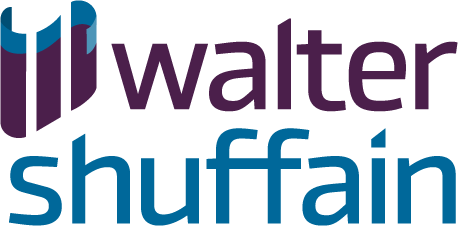Written by: David Cooper, CPA
Any time multiple owners in a business are active in day-to-day operations, the business owners should have a buy/sell agreement. A buy/sell agreement is a binding contract between co-owners that controls when owners can sell their interest, who can buy it, and what price will be paid.
The trouble is, what happens when one owner needs to, but can’t afford to, buy out another owner? In those cases, life insurance can be used to fund the agreement.
Types of Buy/Sell Agreements
While there can be many variations on a buy/sell agreement, the following are most commonly used.
Entity-Purchase Agreement
An entity purchase agreement, also known as a stock redemption plan, is between the business and its owners. Upon a triggering event, such as an owner reaching a preset retirement age, an owner’s death, or serious disability, the company agrees to purchase the interest of the departing owner at an agreed-upon price.
To fund an entity-purchase agreement at an owner’s death, the business can purchase life insurance on each of the owners and is both the owner and beneficiary of the policies. The business then uses the proceeds from the policy to purchase the business interest from the departing owner’s estate. Also, the business could borrow from the cash surrender value of the life insurance policy to help fund the purchase of the interest from an owner departing due to retirement or disability.
Cross-Purchase Agreement
A cross-purchase agreement is between the owners of the business. Upon a triggering event, all owners agree to purchase a departing owner’s interest at an agreed-upon price.
To fund a cross-purchase agreement at an owner’s death, owners purchase life insurance on their co-owners and use the proceeds to buy the departing owner estate’s interest. Also, the surviving owners could borrow from the cash surrender value of the life insurance policy to help fund the purchase of the interest from an owner departing due to retirement or disability
The buy/sell agreement best suited to the business depends on several factors, including the number of owners, how the company is structured, and whether family members are also shareholders.
Using Life Insurance to Fund a Buy/Sell Agreement
Buy/sell agreements don’t need a funding mechanism to be valid. However, having a policy in place can ease the financial strain on the business and its remaining owners if one owner unexpectedly dies or becomes disabled while still working. It ensures that funds are readily available when a triggering event occurs.
You can fund a buy/sell agreement with either term or permanent life insurance. However, permanent life insurance is usually better because it has a cash value component. In addition to potentially providing a death benefit, it also accumulates guaranteed cash value, which can be borrowed in the event of retirement or disability
If the business is sold without a trigger event, the owners of the life insurance can choose to hold on to the policy or surrender the policy for its cash surrender value. In this way, a liquidity event to the business can become a big bonus down the road.
Advantages and Disadvantages of Funding with Life Insurance
Of course, using life insurance to fund a buyout agreement isn’t always the best choice. That’s why it’s important to discuss your unique circumstances and goals with your trusted Walter Shuffain advisor to decide on the best course of action.
In the meantime, consider the following advantages and disadvantages.
Pros
-
- Life insurance can provide a lump sum of cash at death or cash value in the event of disability or retirement
- Life insurance proceeds are generally tax-free
- Life insurance benefits are typically paid out promptly at death, ensuring the transaction can be settled promptly
Cons
-
- If the co-owners ages vary widely, the younger partner may have to pay much higher premiums to insure the older partner
- Businesses can’t deduct premiums paid on a life insurance policy if the company is directly or indirectly a beneficiary under the policy and the policy covers the life of a company owner or officer
- If premiums on the policy are not paid, the coverage will lapse
Considerations
-
- Having a buy/sell agreement in place is assurance to the remaining owners and employees that the departing owner’s share of the business won’t go to someone incapable of running the business effectively.
- One or more co-owners may be uninsurable due to a serious medical condition, poor health, age, hazardous occupation or hobby, or financial reasons.
Whether you’re just starting a business or have been in business for years, discussing your buyout agreement with your business partners is a good idea. As the business value grows, your buy/sell funding plans can become outdated, so you may need to increase your coverage limits periodically.
If you need advice on business succession planning, buy/sell agreements, or life insurance, contact your Walter Shuffain advisor.
